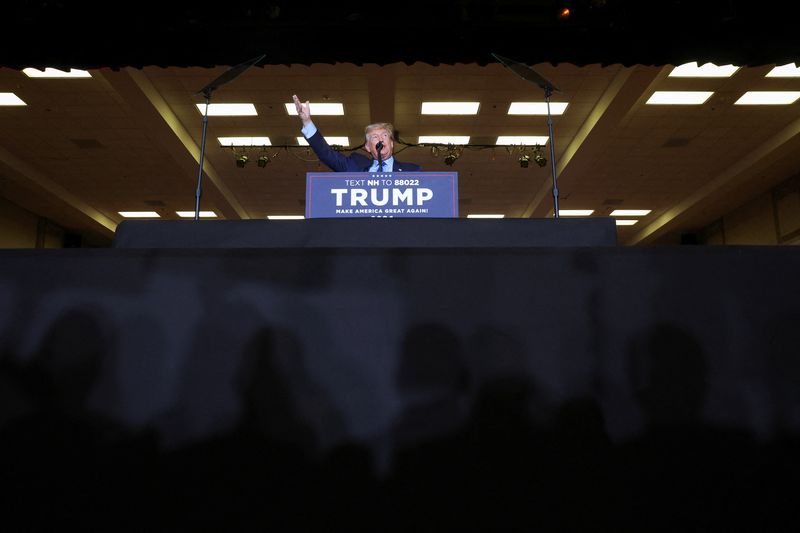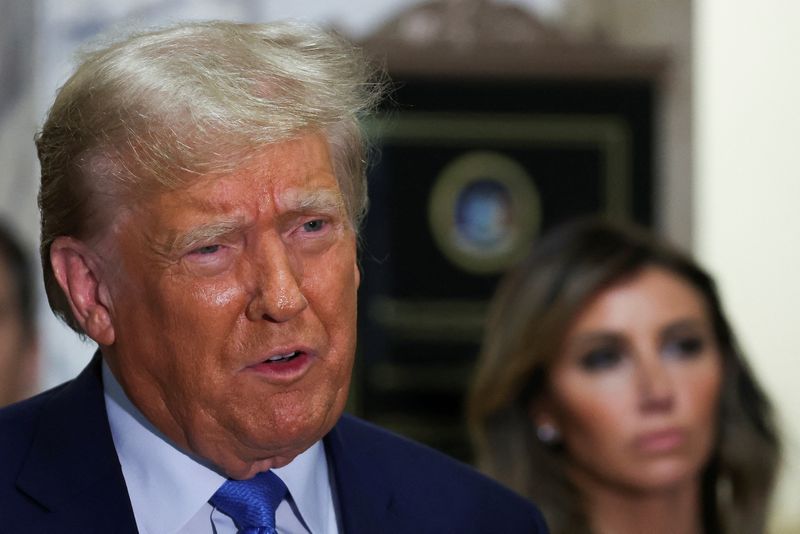WASHINGTON (Reuters) - Former U.S. President Donald Trump has filed a legal motion backing media requests for live television coverage of his federal trial on charges he conspired to overturn the results of the 2020 presidential election.
In the late Friday filing, Trump argued that prosecutors want the trial held "in darkness" as part of what he claims is a politically motivated effort by President Joe Biden's administration to undermine his bid for re-election next year.
Trump is leading the field of Republican candidates seeking the party's 2024 presidential nomination. Biden is expected to win the Democratic Party's nomination to a second term.
Trump is facing four criminal proceedings, including the federal court trial set for March in which he faces charges of attempting to defraud the federal government and obstructing Congress by knowingly spreading false claims of election fraud.
His unfounded claims that the 2020 vote was rigged spurred thousands of his supporters to storm the U.S. Capitol on Jan. 6, 2021, in a failed bid to block congressional certification of his defeat by Biden.
In his latest filing by his lawyers, John Lauro and Todd Blanche, Trump endorsed requests by media organizations that U.S. District Court Judge Tanya Chutkan allow live television coverage of the trial.
"Every person in America, and beyond, should have the opportunity to study this case firsthand and watch as, if there is a trial, President Trump exonerates himself of these baseless and politically motivated charges," said the filing.
It accused Special Prosecutor Jack Smith's team of violating Trump's constitutional rights and attacked Chutkan for allowing "these attacks," thereby "placing the interests of his political opposition" above his legal protections.
"These proceedings should be fully televised so that American public can see first hand that this case...is nothing more than a dreamt-up constitutional charade," it said.

Smith earlier this month opposed the media requests, citing a decades-old federal court rule barring broadcasts of criminal proceedings.
Television coverage also potentially could intiminate witnesses and jurors, Smith said in a Nov. 3 filing.
